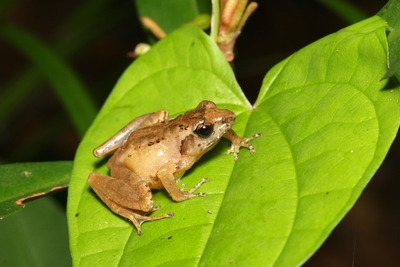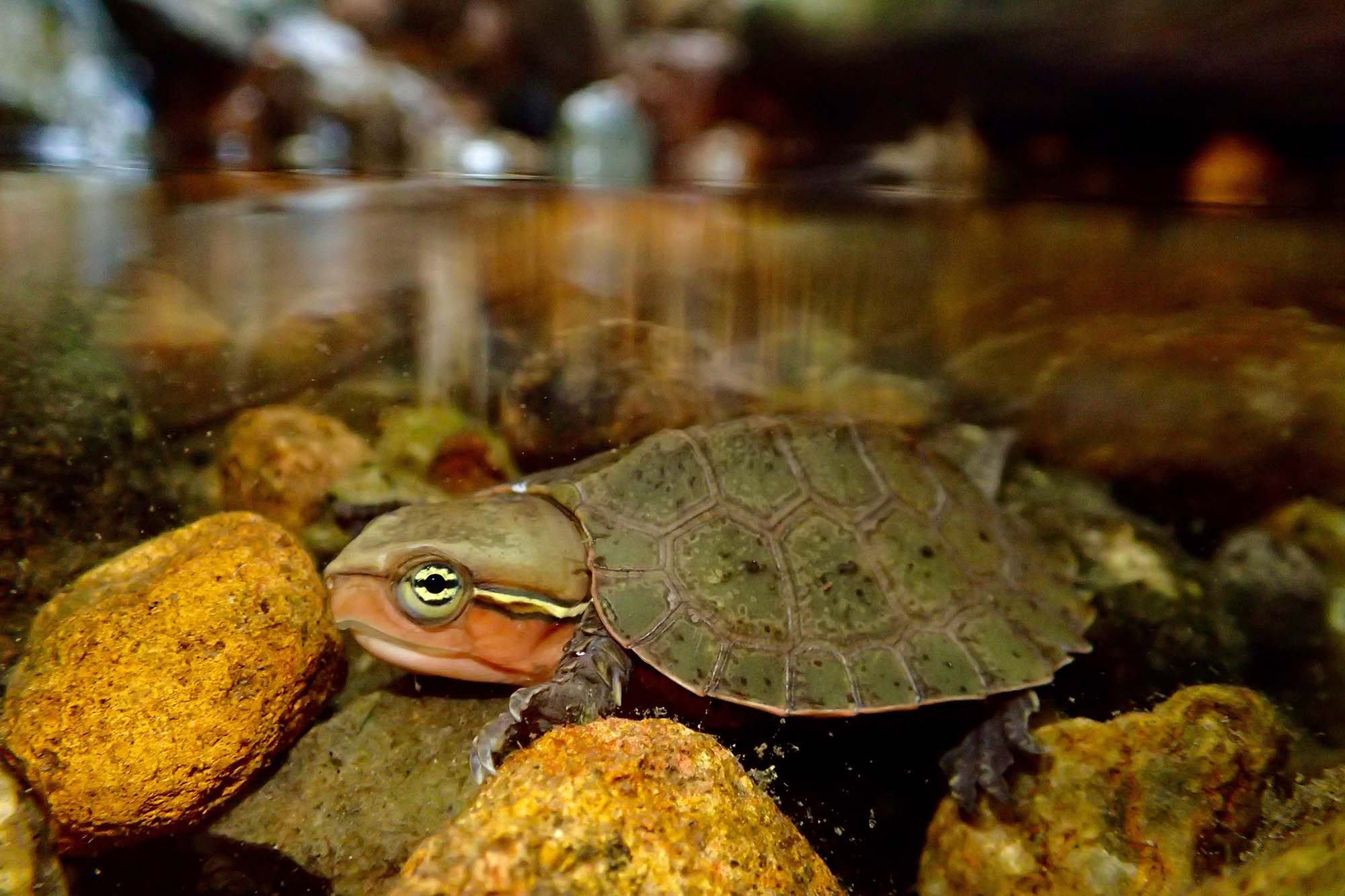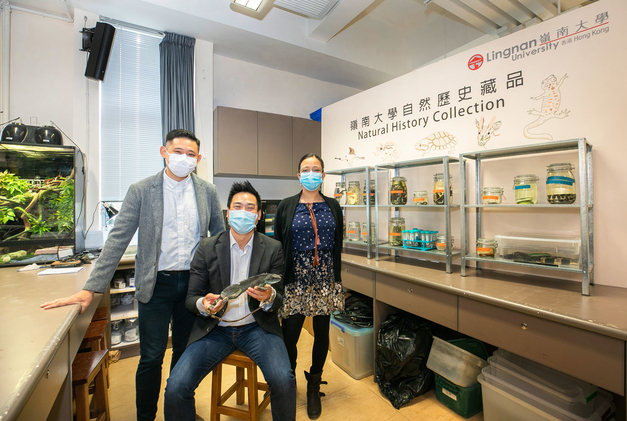In the last chapter (Part 3), we talked about President Professor Leonard K Cheng’s vision and initiatives for residential education and Integrated Learning Programme (ILP), the building blocks of Lingnan’s liberal arts education. In this and the following chapters, we will introduce two key units set up by President Cheng to further enhance students’ whole-person development and the quality of teaching and learning, and to scale up Lingnan’s research excellence and social impact.
The Science Unit was established in 2015 under the Core Curriculum and General Education Office. Its key mission is to provide science education to non-science students, and hence promoting their science literacy, through courses, lectures, and engagement with the campus and local community.
Under the co-ordination of the Science Unit, students are provided with abundant opportunities to conduct projects on campus and in the community in order to know more about the nature. For example, a group of students who were curious to know why frogs croak were accompanied by teachers to observe the activities of frogs near their hostel. Another study group walked around their hostel several times a day to collect data on the number of birds they could see and hear.
For students, the value of these “citizen science” projects is not so much the results or the findings, but rather the experience and the process of thinking and learning.
With the encouraging responses to the science courses and programmes, as well as the very positive learning outcomes, the Science Unit has gradually expanded its set-up in the past few years in order to engage in more research and broaden the teaching scope. In addition, two programmes, Minor in Environmental and Scientific Literacy, and MPhil in Environmental Science were launched in 2020/21.
On the research front, a number of the unit’s scholars have received major public and private funding support for their projects, mostly on the conservation of wild life and environmental protection.

The unit’s Associate Professor Jonathan Fong’s research on “Building a natural history collection of Hong Kong’s amphibians for conservation and education, with a genetic case-study on the endangered Romer’s tree frog (Liuixalus romeri)”, has been awarded a grant of over HK$1 million by the HKSAR Government’s Environment and Conservation Fund. His another important project “Developing Environmental DNA Approaches to Study the Ecology and Conservation of Endangered Hong Kong Turtles” has received over HK$800,000 from the Research Grants Council.
Assistant Professor Sung Yik-hei’s “Study on the Conservation Status of Platysternon megacephalum in Hong Kong” (the big-headed turtle) and two other projects have received nearly HK$1.5 million from the Agriculture, Fisheries and Conservation Department of the HKSAR Government. Professor Sung is also the awardee of the Research Grant Council’s Early Career Scheme with his project “Population dynamics of endangered freshwater turtles - from long-term monitoring to tangible conservation actions”.

Professor Paulina Wong, Assistant Professor, has initiated using the Geographic Information System (GIS) and map applications to address pollution and wellbeing issues. Her project “Fine particulate matter pollution from incense burning at temples in Hong Kong”, supported by the Environment and Conservation Fund, and widely reported by the media, has successfully aroused public awareness of incense burning in the community.
She also worked with a partner organisation to launch a web-based GIS dashboard for the public, showing near real-time COVID-19 information and public health risks in local communities, and citizens’ stress levels, as well as the district with the most urgent demand for essential anti-epidemic commodities six days after the first COVID-19 case in Hong Kong in January 2020.

The Science Unit has also established a free, publicly accessible natural history collection of specimens of local amphibians and reptiles to document Hong Kong’s biodiversity, and for research, conservation, and education purposes in 2021. It welcomes local and overseas scientists and schools to borrow the specimens for research and teaching purposes and it also organises visits for schools and the general public.
“Together with the existing Core and Cluster courses offered by the existing Faculties, the courses offered by this new Unit will complete the key foundation elements of our liberal arts education,” said President Cheng in November 2014 in “Letter to Lingnanians”, when the Science Unit was taking shape.
In the next chapter, we will introduce the other key unit set up by President Cheng: The Lingnan Entrepreneurship Initiative.